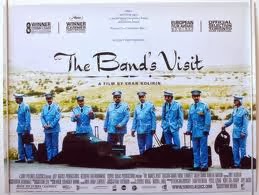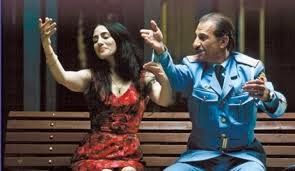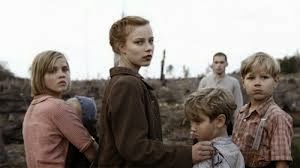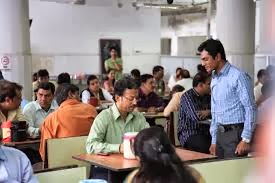 What is life ? Is it a series of challenges we confront or a multitude of solutions to choose from ? Noted Iranian director Gholam Reza Ramezani addresses the above and many other interesting perspectives on life in Hayat (Persian for Life) which is a beautiful slice (a very thin slice at that) of life movie which captures the events of half a day in the life of our protagonist Hayat, a teen studying in fifth grade. It is an important day for Hayat as she has
to sit for an exam to qualify for a boarding school scholarship. Hayat is the best student of her class in the village school and aspires to study further. But, her poor family cannot afford to pay for her studies. Hayat understands that her best chance is to clear the tough exam to qualify for the scholarship to the boarding school and has prepared
hard for the exam.
What is life ? Is it a series of challenges we confront or a multitude of solutions to choose from ? Noted Iranian director Gholam Reza Ramezani addresses the above and many other interesting perspectives on life in Hayat (Persian for Life) which is a beautiful slice (a very thin slice at that) of life movie which captures the events of half a day in the life of our protagonist Hayat, a teen studying in fifth grade. It is an important day for Hayat as she has
to sit for an exam to qualify for a boarding school scholarship. Hayat is the best student of her class in the village school and aspires to study further. But, her poor family cannot afford to pay for her studies. Hayat understands that her best chance is to clear the tough exam to qualify for the scholarship to the boarding school and has prepared
hard for the exam.
However, in a twist of fate, her father falls critically
ill early on the morning of the exam and her mother has to rush with him to the hospital.
Hayat is given the onerous responsibility of staying home to babysit her younger brother Akbar, her
infant sister Nabat and to attend to sundry household work. Hayat tries her best to cope with this
sudden challenging turn of events which threaten to drive a spoke through her carefully nurtured dream of cracking the exam and winning the scholarship. Watch the movie to find if
Hayat succeeds in the face of the difficult situation.
 It is indeed amazing that the director Ramezani could fashion such an engaging movie with a plot so simple and sourced from an event so commonplace. The banality of the plot provides the movie with a near universal appeal. Ramezani steers clear of any melodrama, sermonising or other gimmicks and stays true to the tradition of well known Iranian directors and adopts a clear narrative arc, a realistic
setting. To this end, the natural lighting and sound are optimally harnessed by the cinematography and sound departments for
creating a realistic milieu.
It is indeed amazing that the director Ramezani could fashion such an engaging movie with a plot so simple and sourced from an event so commonplace. The banality of the plot provides the movie with a near universal appeal. Ramezani steers clear of any melodrama, sermonising or other gimmicks and stays true to the tradition of well known Iranian directors and adopts a clear narrative arc, a realistic
setting. To this end, the natural lighting and sound are optimally harnessed by the cinematography and sound departments for
creating a realistic milieu.
Ramezani's skills as a narrator shines through in his choice of the subject and his presentation in a form that is in equal parts, a slice of life drama and an
unconventional race against clock thriller which is laced with humour and subtle
pointers on the state of Iranian society.
The movie benefits to a great extent from its excellent cast. Ghazaleh Parsafar plays the practical and determined protagonist Hayat like a natural and expresses the entire spectrum of emotions convincingly. She creates an immediate connect with the viewer and as a result, the viewer feels her urgency, tension, relief, fear, frustration and silent determination as the movie progresses. The director has also chosen a competent supporting cast - be it Akbar, Hayat's defiant, yet loving younger brother, the head master of the village school who pleads for Hayat, the lady invigilator at the exam hall, the sullen old lady who is the partner of Hayat's mother and surprisingly, even in the baby playing Hayat's infant sister Nabat - who deserve kudos for their competent performance which renders the movie believable and relatable.
 The movie also communicates to the viewer at several levels. While at an apparent level it presents the determined struggle of the protagonist to succeed, one can also feel several subtle subtexts underneath. The movie projects a snapshot of life in rural Iran and brings a sharp focus on the travails of the women who remain at a disadvantage resulting from deeply ingrained conservative ideas prevalent in a patriarchal society which see them as lesser beings. The movie also brings out the role of education in improving their lot by equipping them with confidence, practical knowledge and problem solving skills as showcased by Hayat's approach to her challenges as well as the lady invigilator's near instant understanding of Hayat's predicament. It is a clear testimony of Ramezani's talents as an auteur that he could achieve all this in an engrossing movie that is barely 80 minutes long.
The movie also communicates to the viewer at several levels. While at an apparent level it presents the determined struggle of the protagonist to succeed, one can also feel several subtle subtexts underneath. The movie projects a snapshot of life in rural Iran and brings a sharp focus on the travails of the women who remain at a disadvantage resulting from deeply ingrained conservative ideas prevalent in a patriarchal society which see them as lesser beings. The movie also brings out the role of education in improving their lot by equipping them with confidence, practical knowledge and problem solving skills as showcased by Hayat's approach to her challenges as well as the lady invigilator's near instant understanding of Hayat's predicament. It is a clear testimony of Ramezani's talents as an auteur that he could achieve all this in an engrossing movie that is barely 80 minutes long. Hayat, promoted by the Children's Film Society of India (CFSI) and a multiple award winner at several Children's Film festivals across the globe, is sure to enthrall the viewer irrespective of their age group.
A LESSER KNOWN GEM & A MUST WATCH !!

































